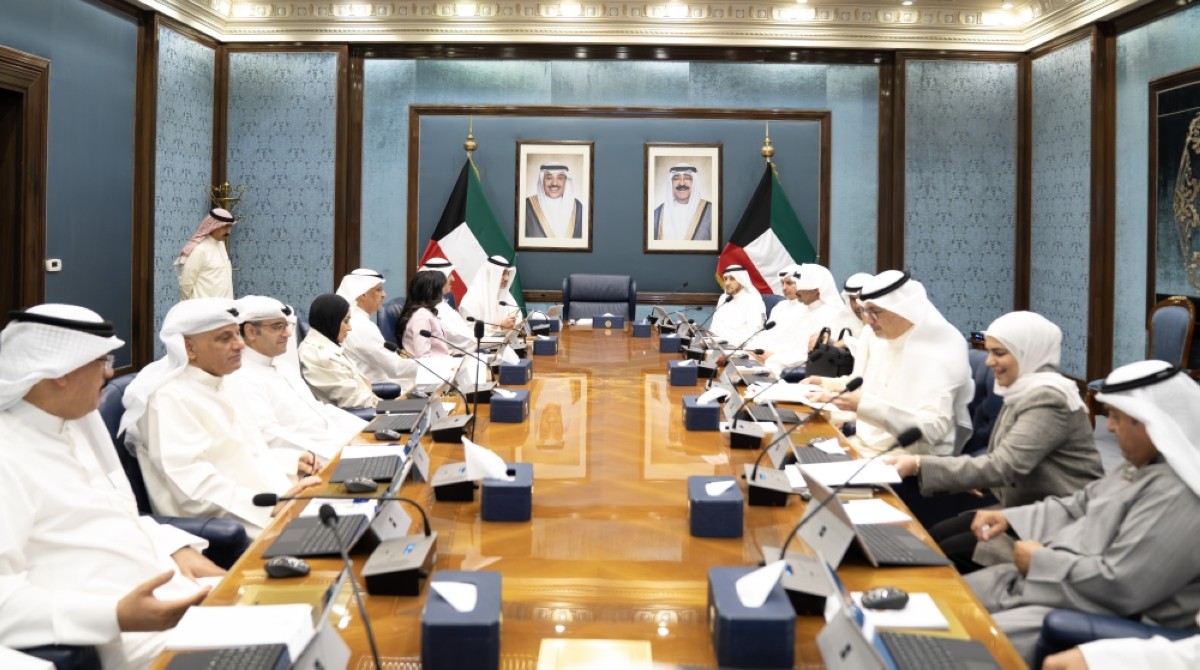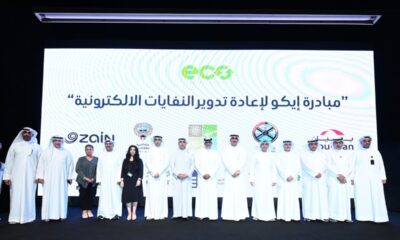KUWAIT: The Cabinet held its weekly meeting on Wednesday at Bayan Palace under the chairmanship of Acting Prime Minister and Minister of Interior Sheikh Fahad Yousef Saud Al-Sabah. Following the session, Deputy Prime Minister and Minister of State for Cabinet Affairs Shareeda Al-Maousherji stated that the ministers reviewed the address delivered by His Highness the Amir to the nation on Sunday, marking the final ten days of the holy month of Ramadan.
During the meeting, the ministers reflected on His Highness the Amir’s speech, in which he expressed hope for significant strides in national reforms and development, aiming for prosperity and progress for the country and its citizens. The Cabinet reiterated key points from the Amir’s address, highlighting the threat posed by those attempting to manipulate the issue of citizenship, distort facts, spread rumors, and misinterpret statements to sow division, incite grievances, and cast doubt on state decisions.
His Highness the Amir reaffirmed the importance of balancing national unity with justice, stressing that all matters related to citizenship would be handled in accordance with the law, as well as humanitarian and socio-economic considerations. He underscored that national unity is a shield against challenges and hardships, pledging continued efforts toward reform, the reinforcement of institutional independence, and prioritization of the nation’s supreme interests.
The Amir further vowed to combat corruption and assured the people of his close oversight of government operations, particularly in the health, education and housing sectors. Citing additional excerpts from his Ramadan speech, he reiterated his commitment to countering corruption and resisting any attempts to undermine the nation’s security or the well-being of its citizens. He also emphasized his active role in monitoring the drafting of legislation, the implementation of treaties, and the advancement of strategic partnerships, expressing confidence in Kuwait’s bright future and the fulfillment of planned economic diversification and financial stability initiatives.
Reaffirming Kuwait’s diplomatic approach in engaging with brotherly and friendly nations, His Highness the Amir stressed the country’s steadfast stance against injustice. He called for collective responsibility in safeguarding national security and stability, urging all to uphold unity and act responsibly. He warned against wasting time on polarization and discord, advising citizens to disregard malicious social media platforms that promote corruption and emphasizing the necessity of respecting the law to protect Kuwait.
The Cabinet expressed its gratitude for the wise guidance of His Highness the Amir Sheikh Meshal Al-Ahmad Al-Jaber Al-Sabah and affirmed its commitment to implementing his directives. Ministers extended their best wishes to Kuwait’s leadership and people on the approaching Eid Al-Fitr, conveying congratulations to His Highness the Amir, His Highness the Crown Prince Sheikh Sabah Al-Khaled Al-Hamad Al-Sabah, and the citizens of Kuwait.
In other matters, Acting Prime Minister Sheikh Fahad welcomed Minister of Electricity, Water and Renewable Energy Dr Sabeeh Abdulaziz Al-Mukhaizeem on his appointment. Additionally, Minister of Commerce and Industry Khalifa Abdullah Al-Ajeel Alaskar briefed the Cabinet on the measures taken by his ministry regarding the controversial draw at a recent shopping festival. He confirmed that the case had been referred to public prosecution, providing details of suspected irregularities in the draw process.
He emphasized the ministry’s commitment to upholding the law in coordination with security authorities and pledged to take all necessary measures to protect consumer rights. The Cabinet expressed full support for Minister Al-Ajeel’s legal actions, underscoring the importance of enforcing the law against any violations. – KUNA


















